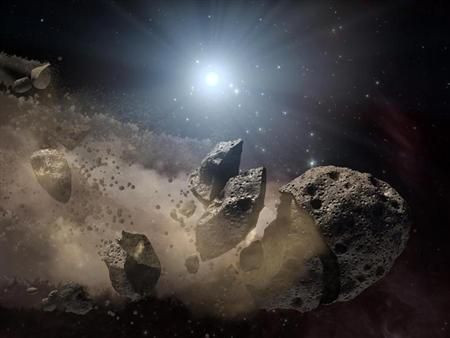
The fact that an asteroid is what finally ended the dinosaurs' 185 million-year reign on Earth is well known. About 66 million years ago on the Yucatán peninsula in Mexico, a planet-changing asteroid fell to Earth and slowly wiped out the dinosaurs.
Or so we thought.
i09 and Reuters report that scientists have gathered evidence suggesting that dinosaurs were killed off much more quickly than we once thought. Initially proposed in 1980, the asteroid theory first came about when scientists noticed the Chicxulub (pronounced Cheek-shulub) crater off of Mexico's Yucatán coast.
The crater was 110 miles in diameter or 180 kilometers.
One scientist Paul Rene suggests that it was not just the asteroid's doing but also the change in environment that followed. Rene and his team discovered a new way to date fossils gathered and noticed a discrepancy in time.
The asteroid's impact, which occurred 66,038,000 (give or take 11,000) years ago according to Jan Smit and his colleagues, is estimated to have killed off the dinosaurs only 33,000 years after impact. A long time one would assume, but shorter than the 300,000 years we originally thought. That is certainly shorter when considering Earth's entire timeline.
The entire study is available to read over at Science.
© 2025 Latin Times. All rights reserved. Do not reproduce without permission.




